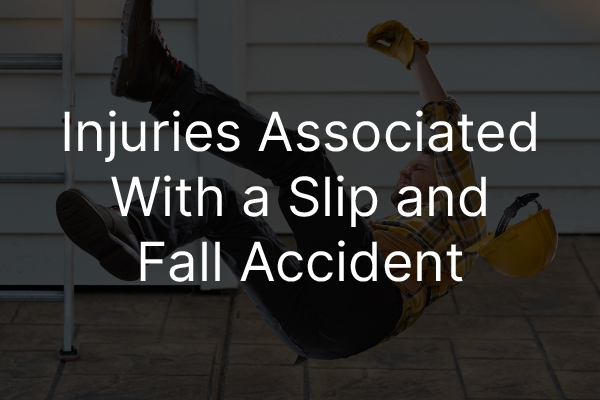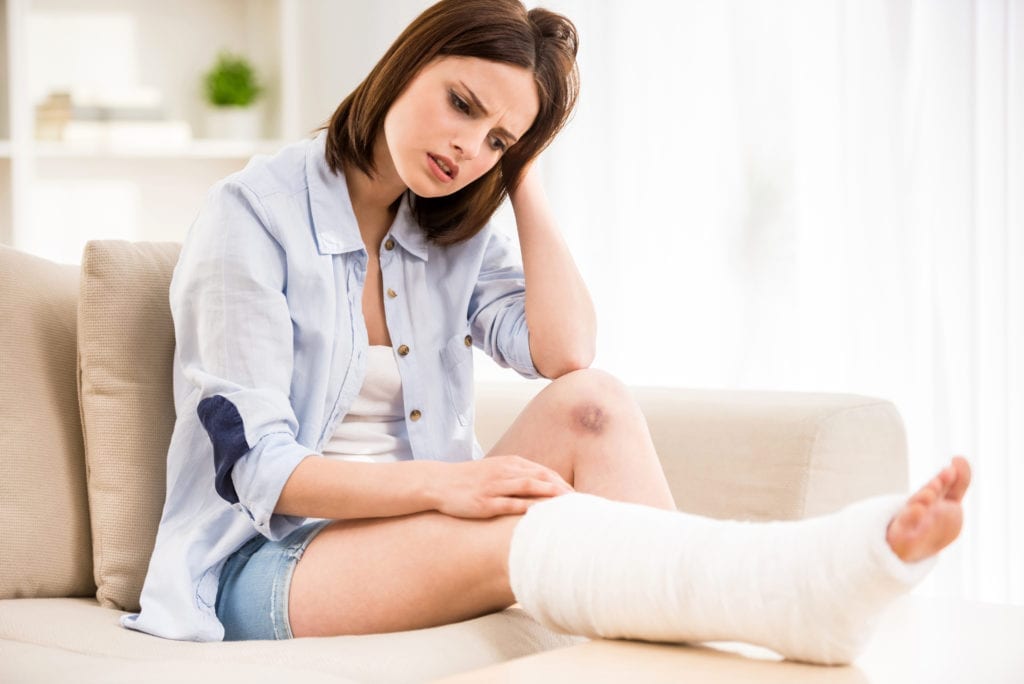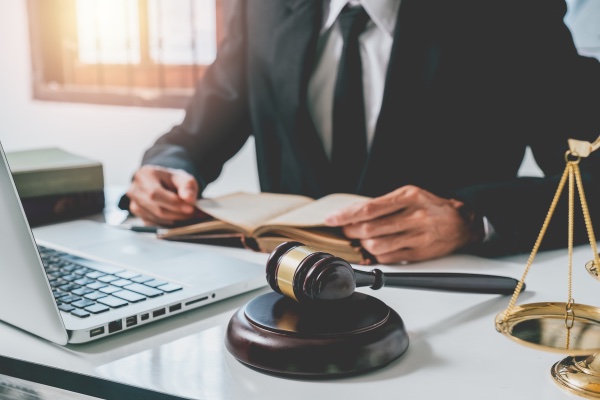
Whether it was slick conditions, such as ice on the stairs, or a spill at a supermarket, slip and fall accidents can be embarrassing and cause serious injuries. And, they are one of the most common types of personal injury cases that fall under premises liability law.
Texas State law protects individuals injured on another person’s property, residential or commercial, through its premises liability laws. These laws give the injured party a chance to seek compensation for their injuries and damages from the negligent party.
Part of knowing if you have a legitimate slip and fall case is understanding the different injuries that can result from an accident. In this article, the team at the Hernandez Law Group, P.C. goes over the most common types of injuries associated with slip and fall accidents and how you can get the compensation you deserve.
What Injuries Are Associated With a Slip and Fall Accident?
Depending on the person involved and the nature of the accident, some may lead to more serious injuries than others. One person slipping on black ice on a walkway may simply lead to bruising. But for another, perhaps older, person, that same ice could cause broken bones, a shattered hip, or a concussion.
The most common injuries associated with a slip and fall accident include:
- Back pain
- Soft tissue damage such as bruising or blood blisters
- Ankle and wrist sprain
- Dislocated shoulders
- Knee damage such as torn ligaments or dislocation
- Spinal cord injury
- Concussion or traumatic brain injury
- Broken bones
What Is the Statute of Limitations in the State of Texas for Slip and Fall Accidents?

The Texas Civil Practice & Remedies Code section 16.003 sets a two-year deadline for individuals looking to file a civil action to get compensation for a personal injury, such as for a flip and fall accident.
What Do I Need to Prove to Gain Compensation for My Slip and Fall Accident?
For personal injury lawsuits, you need to prove the negligence of the defendant. This requires evidence for the following elements:
- The defendant had a duty to the plaintiff: When it comes to premises liability laws, all property owners are required to ensure that their property is reasonably safe for guests.
- The defendant breached that duty: A breach in duty for premises liability laws can include anything from the defendant knowing they had a broken board on their steps and didn’t get it fixed or they failed to warn the visitor about potentially hazardous areas on their property. In either case, the failure to act or warn is a breach of duty to protect guests or visitors.
- The defendant’s breach of duty caused the accident: The defendant’s failure to act or warn must have caused the accident. For example, if a visitor walks up the front porch but the railing was loose and it finally came undone, sending the visitor hurtling down the stairs, the defendant’s inaction to fix the railing caused the accident.
- The injuries the plaintiff suffered were caused by the accident: The injuries the plaintiff received must be a direct cause of the accident. For example, the visitor who fell down the stairs due to the broken railing suffered a sprained ankle and a dislocated shoulder.
Understanding Comparative Negligence in Texas for Slip and Fall Accident Cases

Unfortunately, just because you suffered an injury due to an accident on another person’s property does not guarantee that you will get compensation. Even if you proved that the elements of negligence were present, the property owner may argue that you had some share of the blame for the accident. If this argument is successful, your compensation may be greatly reduced.
Here are some of the arguments the defense may try to shift the blame:
- The plaintiff was on a part of the property where visitors were not allowed or not expected to be. This defense would need to have proof showing that this section was blocked or had a sign warning visitors of potential danger.
- The plaintiff wasn’t paying attention to where they were walking.
- The plaintiff wasn’t wearing footwear appropriate for the area or situation they were in.
- There was a proper warning that the area where the plaintiff was walking was dangerous but the plaintiff ignored it.
- The dangerous conditions were obvious.
If it is determined that the plaintiff was partially responsible for the accident, the damages may be reduced according to the percentage of fault that the plaintiff shared as long as that percentage is 50 or less. For example, if the plaintiff was found to be at least 25% responsible for the slip and fall accident, they may only claim up to 75% of the total compensation.
If the plaintiff is found to have greater than 50% of the responsibility, they will not be able to recover any damages at all.
Don’t Let the Defense Make You Take Less Than You Deserve
If you or a loved one was injured in a slip and fall accident on someone else’s property, you may be eligible for monetary compensation. The dedicated team of premises liability attorneys at the Hernandez Law Group, P.C. will fight to get you the compensation you deserve. With the expansive knowledge of top-class attorneys, such as Juan Hernandez who is one of the two percent of Texas Board Certified Lawyers in personal injury law, you know your case is in good hands. Contact our team today for more information on our services or to schedule a free no-obligation consultation. There is no challenge that we can’t handle.
